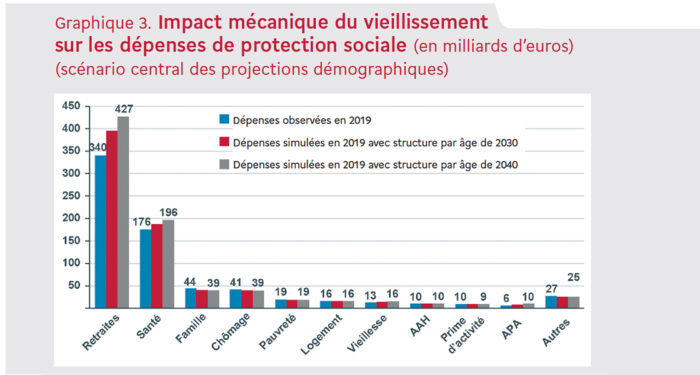The French Economic and Social Council has just produced a report, overseen by Chantal Lebatard, on “The social and demographic outlook for France to 2020-2040” which marks a great step forward in its analysis of the social and economic issues that may arise in the medium and long term as the result of an ageing population. The report is remarkable because:
– the study is based on far more daring population forecasts than those normally used by INSEE (the National Statistical Office); they are probably closer to the real range of possible futures;
– the simulation is based on a neo-classical growth model that makes it possible to test quite a wide range of hypotheses;
– the exercise is not confined to examining the future of pensions but looks more generally at the impact on the social security system as a whole.
In his summary of the report, Charles du Granrut first reviews the hypotheses and the results of population projections, which confirm the inexorable increase in the population aged 60 and over. He then goes on to explore the hypotheses and main results of the economic simulations, especially for GDP and employment. Finally, having described the chosen hypotheses, he outlines some of the potential social and economic impacts of ageing on the social protection system (health, pensions, family support…).
This exercise is a useful addition to the studies conducted so far, which mostly concentrate on pensions. It highlights the obvious – a high level of growth would make the adjustments easier – but also stresses that the scope of problems nevertheless remains daunting.
L'impact du vieillissement démographique en France à l'horizon 2020-2040. Une note de synthèse fondée sur le rapport du Conseil économique et social
Cet article fait partie de la revue Futuribles n° 250, fév. 2000


